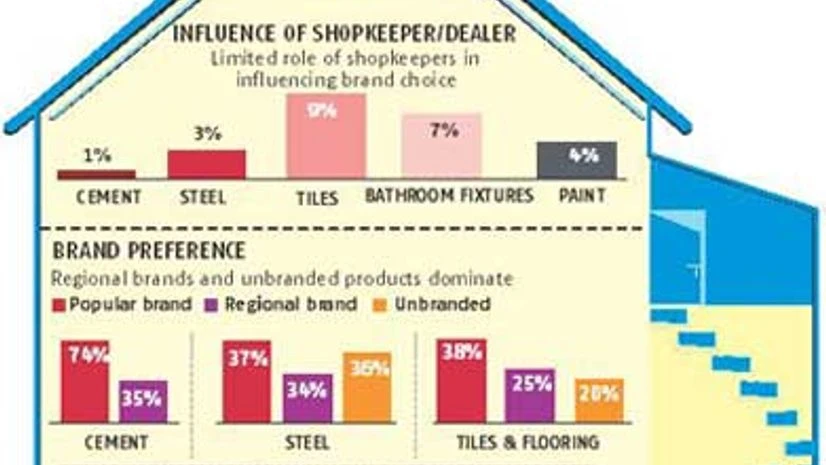There are huge opportunities for players in the real estate sector. Studies show that in the next five years, there is scope for around 400 real estate projects to be developed in 35 cities for housing about half a million people. Consumers in metros are more likely to buy apartments than single-family homes. That is primarily due to the lack of affordable real estate in core urban areas, low level of involvement in building a house due to a fast-paced lifestyle and provision of premium amenities in gated communities. In contrast, people in Tier-II cities tend to build independent houses.
Nielsen recently surveyed such towns to find out what the independent home-buyer looks for when choosing brands for the house. It covered Amritsar, Jamshedpur, Sagar and Salem, all of which have seen explosive growth in real estate. Approximately nine out of 10 people say they opted to build independent houses because it gave them the chance to choose their building materials. Around 34 per cent of the respondents say designing their house according to their requirements as an important reason for opting for independent homes. Only a tiny percentage of the people found flats to be desirable.
Brand preferences
When buying cement and paint, most consumers opt for popular brands. But only one-third of the respondents say they bought popular brands of steel, tile and bathroom fixtures, as regional brands appear to be leading players. This finding suggests that better engaging with decision-makers in tier II cities can help consolidate market share.

When it comes to which players have an edge in the various markets, the survey indicates that unorganised local and regional players have bigger roles to play in non-metro areas than company showrooms and dealerships.
Proximity and price are the primary factors that influence consumers to buy from local stores. These stores aren't able to provide "additional services," however, which is something that manufacturers of cement, steel, tile, bathroom fixtures and paint can offer through their dealerships.
This suggests that the bigger players in this sector will benefit if they are able to facilitate a hands-on experience for shoppers and help them gain knowledge regarding usage and maintenance of various products.
Through engagement, companies will be able to improve brand value and develop loyalists who may recommend their brands to others, even after their house construction is over. The survey also reveals that more than half of the decision-makers don't know which brands they're going to buy before visiting the stores; shopkeepers and dealers have limited influence over their ultimate choices.
It is clear that low involvement of companies has created fragmented markets.

)
